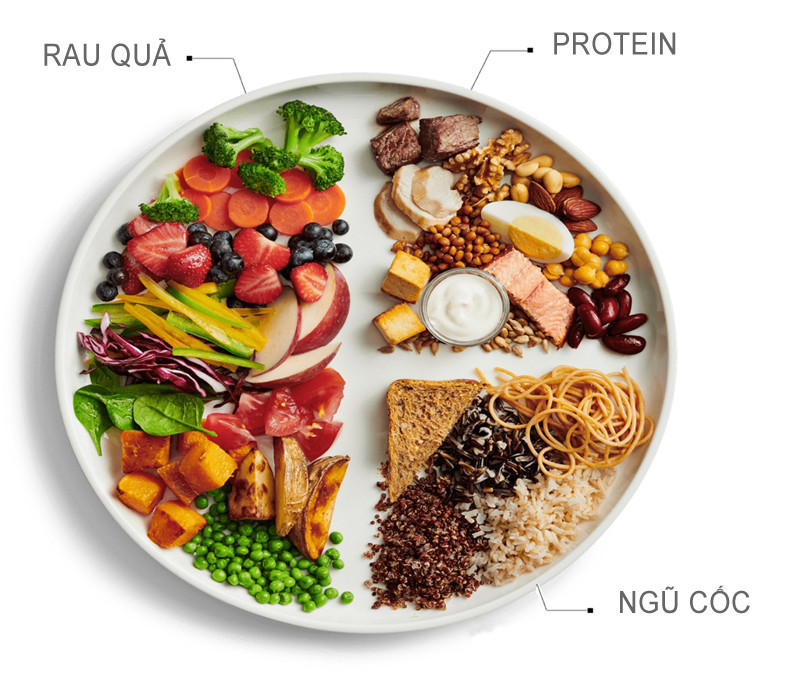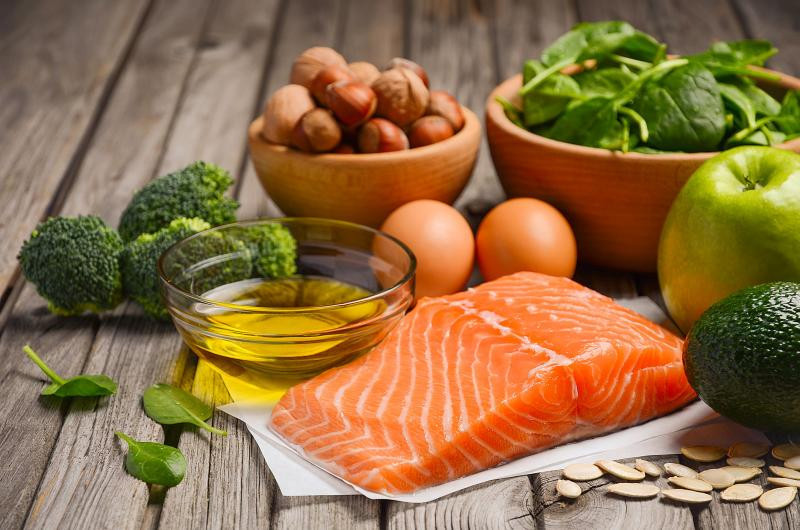Harvard University diet for long, healthy life
Vegetables make up half of your plate, with the rest reserved for grains and healthy proteins.
More than 10 years ago, nutrition experts at the Harvard TH Chan School of Public Health and Harvard Health Publications (USA) compiled an eating plan to help people achieve optimal health.
“This way of eating prevents diseases that are common in the US and the world, such as cardiovascular disease, type 2 diabetes, and various cancers,” said Lilian Cheung, a nutrition lecturer at the Harvard School of Public Health.
Now that the topics of longevity and healthy living are more popular than ever, people are looking for more solutions and the Harvard diet has seen a resurgence of interest.
 |
A standard food plate according to the Harvard diet. Photo: WD |
What is the Harvard diet?
According to Harvard University, here are guidelines for creating balanced, healthy meals. Accordingly, you should prioritize vegetables and fruits, making up half of the meal. The rest is whole grains and healthy proteins. Specifically as follows:
Vegetables and fruits play an important role in most meals (1/2 plate)
Researchers suggest that when preparing fruits and vegetables, vary the colors and types and eat a little more vegetables than fruits.
Potatoes are not considered a vegetable on this diet because they are a refined carbohydrate. Potatoes spike your blood sugar. Cheung says you should eat the whole fruit instead of juice.
 |
Some healthy foods to eat. Photo: Uschamberfoundation |
Whole grains (1/4 plate)
The Harvard diet specifies the types of grains you should consume, strongly encouraging whole grain consumption.
“Whole grains have more vitamins, phytochemicals and minerals, are healthier and don't raise blood sugar too quickly,” says Cheung.
Some whole grains you should consider include oats, barley, whole wheat (bread, pasta made from whole wheat), brown rice…
Healthy protein (1/4 plate)
Some healthy proteins include fish, chicken, duck, beans, nuts. You should limit red meat and avoid processed meats such as bacon and sausages if possible.
Use healthy oils in moderation
To avoid consuming unhealthy trans fats, you should avoid cooking with margarine and some vegetable oils.
Instead, expert Cheung recommends looking for healthier options such as olive oil, soybean oil, sunflower oil, peanuts, etc.
Drink water, tea and coffee instead of milk
“We’ve really looked at the beverage,” says Cheung. “For many years, people have been advised to drink three glasses of milk a day. We don’t think that’s a good solution, especially for some groups of people who are lactose intolerant.”
The Harvard diet encourages you to alternate between water, tea, and coffee, especially the low- or no-sugar variety.
Additionally, they recommend reducing milk consumption to one to two servings per day and one small glass of fruit juice per day. You should avoid sugary drinks altogether if possible.
Physical activity
“We need to exercise half an hour a day, at least five times a week. We all age and we should form good habits when we are young,” Cheung noted.
Physical activities can include taking exercise classes, going for a brisk walk. It is important to avoid sitting for most of the day.


